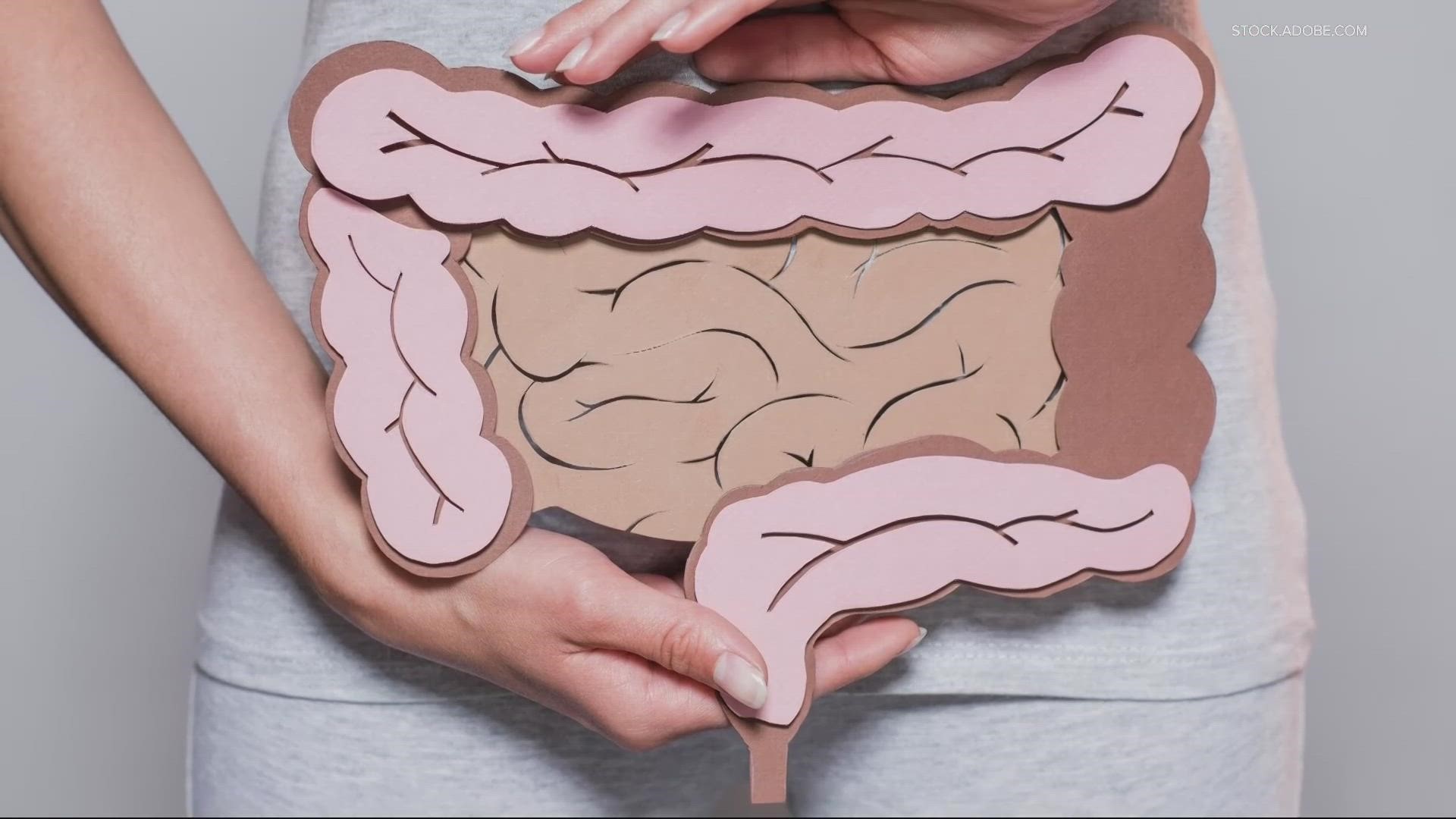PORTLAND, Ore. — March is National Colorectal (colon) Cancer Awareness Month, and also a chance to get proactive about colon health.
“Don't put it off,” colon cancer survivor Janel Gunderson said. “If you're 45 and you haven't had your colonoscopy yet — get it. It's so easy compared to going through cancer treatments.”
Excluding skin cancers, colon cancer is the third most common cancer diagnosed in both men and women in the United States. It’s also the third leading cause of cancer-related deaths. It's expected to cause about 52,550 deaths during 2023, according to the American Cancer Society.
About ten years ago Gunderson was diagnosed with stage 4 colon cancer that had metastasized to both of her lungs.
“I was 34. I'd been having symptoms for about 2 years, but because of my age and I didn't really have any risk factors, it's kind of swept under the rug,” she said. “So by the time I finally had my colonoscopy, it had already spread to my lungs.”
Colon cancer patients don’t’ always experience symptoms, especially at first.
Colon cancer symptoms
- A change in bowel habits
- Blood in or on your stool
- Diarrhea, constipation, or the feeling that the bowel does not empty all the way
- Abdominal pain, aches, or crams that don’t go away
- Weight loss and you don’t know why
Gunderson said she experienced many symptoms, but at just 34 years old doctors pointed to other possibilities for two years.
“I had large babies, you know, they told me, ‘You have hemorrhoids or you have IBS.’ And so finally it took going to my third doctor just knowing something was wrong before I finally got a colonoscopy and was diagnosed pretty much instantly,” she said.
Gunderson went through three years of chemo and two surgeries. Now, she’s cancer free and officially was told by her oncologist she doesn’t need to come back for regular testing.
She is sharing her story to encourage others to get screened and talk to their doctor when something feels wrong.
“If you feel like something's wrong, then seek answers and don't just brush it under the rug,” Gunderson said.
Early detection is really key because treatments work best when you catch cancer early. 7 in 10 U.S. adults — aged 50 to 75 are up to date with colorectal screenings, according to the Centers for Disease Control and Prevention.
Colorectal cancer almost always develops from precancerous polyps (abnormal growths) in the colon or rectum. Screening tests can find them so that they can be removed before they turn into cancer.
Here are the official recommendations from the CDC
- Regular screening begins at age 45
However, you may need to be tested earlier if:
- You have inflammatory bowel disease – such as Crohn’s disease or ulcerative colitis
- A personal or family history of colorectal cancer or colorectal polyps
- If you have certain genetic syndromes
If an individual thinks they're at an increased risk — they should talk to their doctor about when to begin screening, which test is right for them, and how often they should get tested.
Colon Cancer Month in Portland
The Portland chapter of the Colon Cancer Coalition is kicking off March by lighting the Morrison Bridge in downtown blue.
It’ll be lit starting Wednesday, March 1 through Friday, March 3, which is “Wear Blue Day.”
“Everybody show your blue,” Lisa Shulze said. “Dark blue is for colon cancer”
Shulze is with the coalition. She got involved after she lost her dad to colon cancer about six years ago.
“I think why I am so passionate is I think if people can get the screening if you can catch it early, you have such a better chance of beating it,” she said.
Shulze helps organize the annual Get Your Rear in Gear 5k run/walk, a fundraiser that helps support local people and families in their cancer fight.
It’ll be back this August at Mount Tabor.
“It's just a time to come together for people to support each other and the community,” Shulze said. “We help the families: we pay rent, we pay utilities…these families are fighting so hard to stay alive, that we help them, so they don't have to worry about the other things.”

